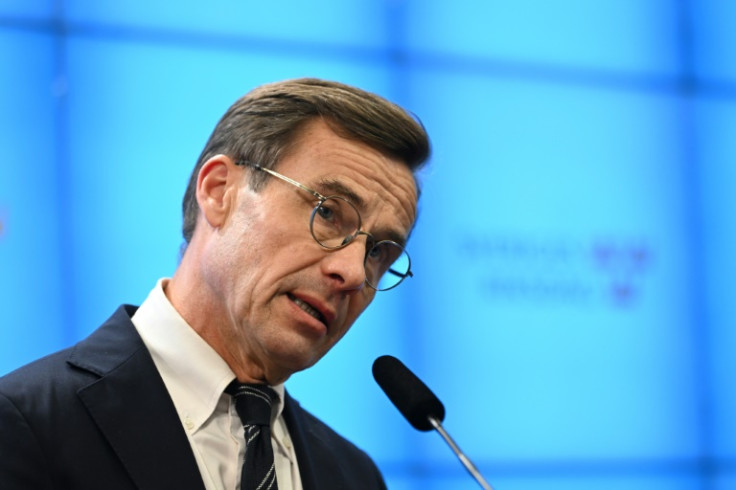Sweden elects right-wing PM backed for first time by far-right
Sweden's parliament on Monday narrowly elected conservative leader Ulf Kristersson as prime minister.

Sweden's parliament on Monday narrowly elected conservative leader Ulf Kristersson as prime minister, leading the country's first government to be shored up by the far-right Sweden Democrats.
Kristersson, 58, was elected by a wafer-thin majority of three votes, after announcing a deal on Friday to form a governing coalition comprising his Moderate Party, the Christian Democrats and the Liberals.
The government will be supported in parliament by its far-right ally, the anti-immigration, nationalist Sweden Democrats.
"I am thankful and glad for the trust I have received from parliament and also considerably humble before the tasks ahead of us," Kristersson told a press conference following Monday's vote.
He is expected to present his new government on Tuesday.
The Sweden Democrats were the big winners in the closely fought September 11 general election.
They emerged as the second-largest party with a record 20.5 percent of votes, trailing only the Social Democrats, who have dominated Swedish politics since the 1930s.
The right-wing bloc now has 176 seats in parliament, to their left-wing rivals' 173.
On Friday Kristersson's four-party alliance unveiled a 62-page roadmap heavily influenced by the far-right agenda. It promises major crackdowns on crime and immigration and the construction of new nuclear reactors.
"Sweden is a country that is facing several parallel crises at the same time," said Kristersson.
Sweden Democrat leader Jimmie Akesson told parliament that while his party would have preferred to be in government and holding cabinet posts, the policies the coalition pursued were most important.
"It is what the government does that is important, not what the government looks like," he said.
Akesson accused past governments, on both left and right, of mismanaging the country.
"We are ready to support a new government... because we have made sure, through negotiations, that it will do enough of what is necessary to reverse this trend," he said.
In its roadmap, the incoming government said it aimed to cut the number of refugees resettled in Sweden through the UNHCR from 6,400 last year to just 900 per year during its four-year mandate, introduce incentives to encourage immigrants to return home, and explore the feasibility of deporting foreigners based on "misconduct".
It will also probe the possibility of keeping asylum seekers in transit centres during their application process, ditch Sweden's target of spending one percent of gross domestic income on development aid, and introduce a national ban on begging.
While the quartet has presented a united front, its constituent parties have traditionally differed on a number of key policy areas.
Major concessions were made in their joint agreement, primarily to meet the far-right's demands.
A major theme of the election campaign was Sweden's struggle to combat soaring gang shootings.
"We will do everything possible to stop this," Kristersson said on Friday.
The roadmap said there should be body searches in some disadvantaged areas, harsher sentences for repeat offenders, double sentences for certain crimes, and anonymous witnesses.
These elements were all major concessions by the small, centre-right Liberal party.
The significant influence of the Sweden Democrats over the four-party deal has sparked tensions within the Liberals, whose support is also essential for Kristersson's survival.
As his administration will command a tiny majority of just three seats in parliament, it would only take a tiny number of disgruntled MPs to jump ship for the government to crumble.
Outgoing prime minister Magdalena Andersson, the head of the Social Democrats, has also reached out to the Liberals in the hope of forming a left-majority bloc in parliament with their backing.
© Copyright AFP 2025. All rights reserved.




















